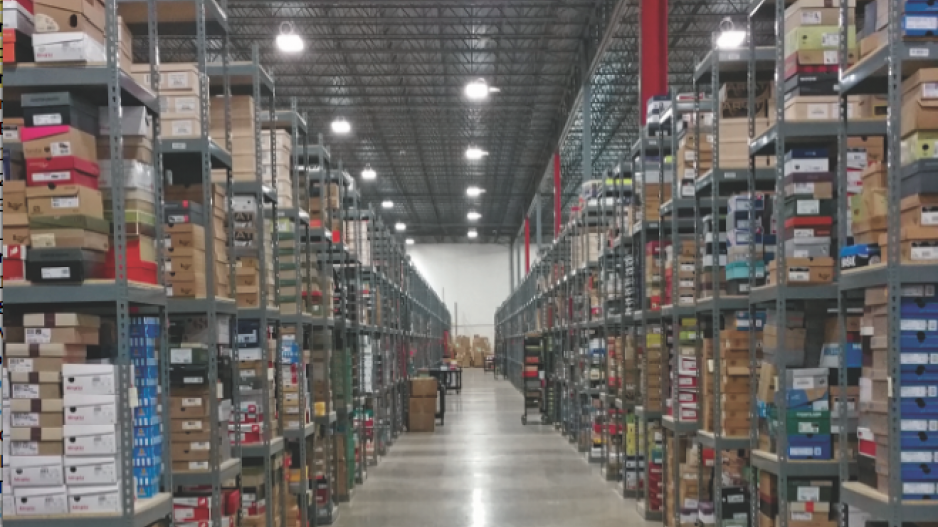Amazon.com Inc.’s decision this month to add clothing and shoes to the wares at its Canadian online store is set to shake up the local retail scene.
The move not only will affect local retailers and manufacturers who can now partner with the e-commerce giant (Nasdaq:AMZN) to sell their products but will also put pressure on those who decide to stick with their current sales channels.
“There’s a real fear around what Amazon can do to damage businesses,” said retail analyst and DIG360 Consulting Ltd. principal David Gray, who recently attended the Internet Retailer Conference in Chicago, where one session focused on how retailers can work with Amazon.
Gray believes the expanded Amazon.ca offerings will make competition fiercer while simultaneously accelerating the larger trend of consumers buying online.
“If you’re selling a product that others are also selling, you stand at risk of Amazon becoming the consumer gateway to that product,” Gray said.
“So, in that case, selling your products through Amazon is a pretty good move.”
Amazon is increasingly seen as the consumer goods equivalent of what Kayak is for airfares – a price-comparison website. The company’s business model is not to simply offer products for sale but also to list a range of suppliers that the consumer can choose from.
Different suppliers might sell the same pair of New Balance shoes for different prices, for example. Regardless of which supplier the consumer chooses to buy from, Amazon still takes the same commission, Gray explained. (According to Amazon.ca’s fee webpage, the referral fee for shoes is 15%.)
This model works well for companies such as Vancouver-based Shoes.com, which also operates SHOEme.ca in Canada.
That’s because Shoes.com resells well-known brands from a variety of suppliers.
“We’re the biggest provider of shoes to the Amazon store,” Shoes.com CEO Roger Hardy told Business in Vancouver. “We’ve chosen what brands we want to sell through Amazon.”
Despite generating revenue from selling shoes on Amazon, Hardy’s focus remains his own website, which customers can personalize by entering their shoe size. They then only ever see shoes in their own size.
“We also have a call centre in Vancouver and ship product the day it is ordered,” he said. “If you try to call Amazon, or send and e-mail, they may be slower to respond.”
Using Amazon as a sales channel also helps local manufacturers such as Vancouver’s Herschel Supply Co., which makes backpacks, hats and other products and sells them in more than 70 countries through a mix of bricks-and-mortar and online stores.
Its relationship with Amazon started almost three years ago and has expanded to become one of Herschel’s biggest sales channels.
Marketing manager Allison Butula told BIV that she expects Herschel’s sales through Amazon to rise thanks to the online retailer’s Canadian expansion.
Partnering with Amazon is more difficult for companies such as online eyewear seller Clearly and online tailor-made suit seller Indochino because the level of customization their products require doesn’t fit with Amazon.ca’s format.
Clearly CEO Roy Hessel said he is “happy to collaborate” with any sales channel that boosts access to his eyewear.
Not selling through Amazon could also be a good strategy for some because it enables companies to control their brand better, said Gray. He added that high-end brands such as Hugo Boss would be unlikely to want to hitch their products to the Amazon bandwagon.
Indochino CEO Kyle Vucko agreed.
“I don’t see them as a competitor because they’re selling products that you can get online on other sites already,” he said.
Another local company that could be affected by Amazon’s broadened offerings in Canada is Burnaby’s Best Buy Canada.
The subsidiary of electronics giant Best Buy Co. Inc. (NYSE:BBY) has spent the past two years adding new kinds of products such as hats, umbrellas and household items to its websites . It has branded the experiment Viva and aims to sell products that customers are not accustomed to associating with the company.
No one from Best Buy was available at press time to discuss Viva’s success, but it is clear that Amazon.ca will be a formidable competitor for Best Buy Canada’s fledgling Viva brand. •




